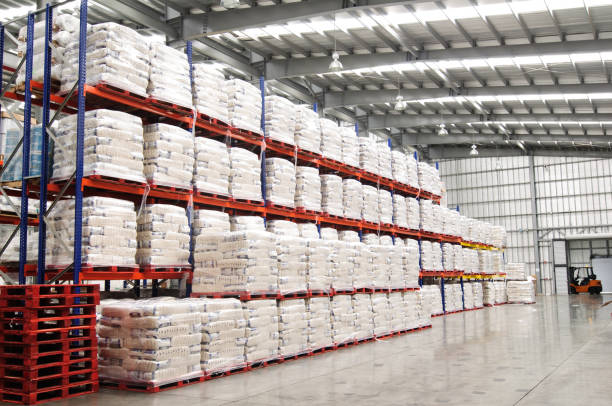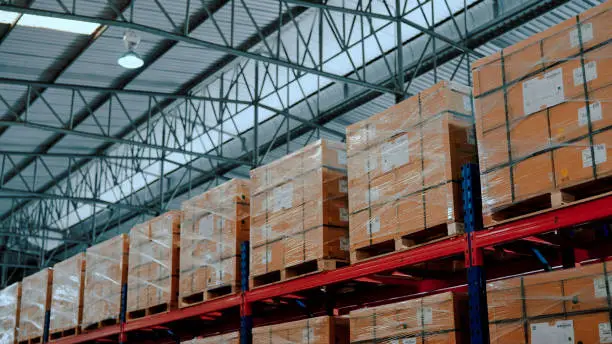With the ongoing modernisation of industries, plastic pallets are increasingly replacing traditional wooden pallets. Many businesses are adopting plastic pallets due to their durability, ease of maintenance, recyclability, and cost-effectiveness. This shift towards plastic aligns with both operational needs and environmental conservation initiatives.
One key trend in this area is plastic pallet pooling, where companies rent pallets instead of purchasing them outright. This model allows businesses to focus on their core operations while third-party providers manage the pallet supply.
But what exactly are the opportunities and challenges associated with the rise of plastic pallets in emerging markets?
Opportunities for Plastic Pallets
Long Lifespan
Plastic pallets, especially those from brands like Chep and Loscam, have a much longer lifespan compared to traditional wooden pallets. They are designed to withstand harsh operational conditions, including exposure to moisture and extreme temperatures. Unlike wood, plastic does not absorb moisture, meaning there is no risk of decay. This makes plastic pallets suitable for year-round use, regardless of the environment.
In the modern industry, plastic pallets are considered more robust and durable, offering improved operational efficiency and a longer service life.
Light Weight
One of the standout features of Chep plastic pallets is their reduced weight. This directly lowers shipping costs, which are often determined by the weight of goods being transported. Additionally, plastic pallets are easier to handle manually than wooden pallets, especially for companies without access to lifting equipment.
The lighter weight also reduces the risk of workplace injuries during manual handling, making them a safer and more efficient alternative to their wooden counterparts.
Sustainability
Plastic pallets such as Loscam and Chep are highly sustainable. They are recyclable, which extends their life cycle and reduces the need for frequent replacements. Over time, this sustainability offers both environmental and economic advantages. With reduced demand for raw materials, the environmental impact of pallet production is lessened.
Furthermore, because plastic pallets are reusable, they contribute to reducing waste and pollution, making them a preferred option in industries that prioritise eco-friendly practices.
For more on sustainable logistics practices, visit Supply Chain Sustainability.
Plastic Pallet Pooling
An innovative concept gaining traction is plastic pallet pooling. Under this system, companies rent pallets from third-party providers rather than purchasing them. The pooling service ensures that pallets are regularly maintained, repaired, and replaced, with no additional costs incurred by businesses within the pool.
Pallet pooling helps companies avoid the upfront costs associated with purchasing pallets and ensures a steady supply without the risk of shortages. With standardised pallet sizes, pooling also makes it easier to comply with global shipping regulations and guidelines.
This system offers a significant advantage for businesses, particularly in the logistics sector, where efficient pallet management is essential.
For more on pallet pooling, see CHEP Pallet Solutions.
Challenges for Adopting Plastic Pallets
Despite the numerous advantages of plastic pallets, there are still some challenges that businesses must consider before making the switch. One significant challenge is the potential overdependence on pooling providers. Companies within a pallet pool rely heavily on the provider’s ability to supply and manage pallets. If a pooling provider faces operational difficulties or supply chain disruptions, it can have a direct negative impact on the businesses relying on their services. For instance, delays and pallet shortages can occur during peak periods.
To mitigate this risk, companies may need to establish backup systems or diversifying their pallet supply sources.
Cross-Contamination
Plastic pallets, while durable, can be prone to absorbing dirt and chemicals, particularly in industries dealing with hazardous materials. If a plastic pallet has been exposed to spills or leaks, and the pallet is not properly cleaned, it can lead to cross-contamination. This is particularly concerning in industries like food and pharmaceuticals, where cleanliness and hygiene are paramount.
In such cases, the pallet pooling system could inadvertently become a source of contamination, leading to potential health and safety risks. It is therefore vital that pooling providers implement stringent cleaning and inspection procedures to maintain the integrity of the pallets in circulation.
For more on preventing cross-contamination in logistics, visit Food Safety and Quality in Logistics.
Summary
Plastic pallets are increasingly replacing traditional wooden pallets due to their durability, lightweight nature, and sustainability benefits. Leading brands like Chep and Loscam are offering businesses a reliable and cost-effective solution for pallet management.
The advent of plastic pallet pooling has further simplified logistics, allowing companies to avoid upfront costs and ensuring a constant supply of pallets. However, challenges such as overdependence on pooling providers and the potential for cross-contamination must be addressed to maximise the benefits of plastic pallets.
If your business is planning to modernise its pallet management system, consider working with a reliable partner like Precise Pallet Management, offering top-quality Chep and Loscam plastic pallets. Contact us at connect@precisepallets.com.au or call (03) 9020 4700 to discuss how we can help streamline your logistics operations.


